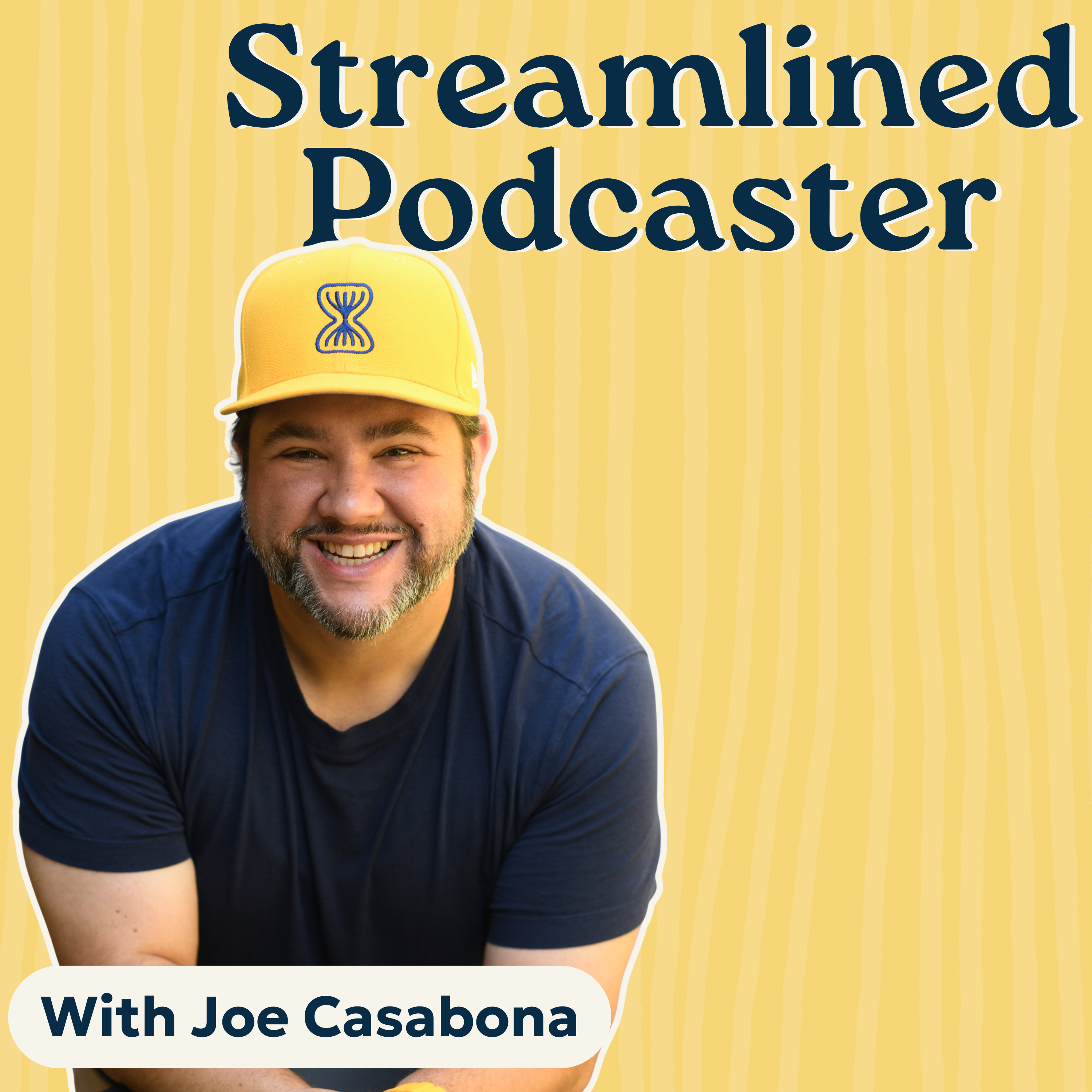Podcasting Made Simple
Podcasting Made Simple is the premier podcast about podcasting! We’re here to help podcast guests and podcast hosts reach more listeners and grow their income so they can change more lives! Join Alex Sanfilippo and other podcasting industry experts as they share how you can level up on either side of the mic! (Show notes and resources: https://PodMatch.com/episodes)
Podcasting Made Simple
Get More Downloads for Your Podcast Starting this Week | Chase Neely
Do you ever feel like you're fighting an uphill battle with your podcast? How about the feeling that you're never gaining any substantial traction? If you're not seeing the results you expected from your podcasting efforts, it's time to make a change! In this episode, Chase Neely explains how you can break your podcast out of stagnation and into a position of thriving. Get ready to learn how to improve and reinvent your podcasting strategy to position for a huge response!
MORE FROM THIS EPISODE: HTTPS://PODMATCH.COM/EP/269
Takeaways
Take a 30,000-foot view of your podcast to identify areas for improvement.
Adopt a mindset of improving or inventing until you get a huge response.
Rethink your podcast strategy and software to optimize growth and reduce costs.
Focus on incremental improvements to have a compounding effect on your podcast's growth.
Chapters
00:00 Introduction and Background
01:11 The Importance of Taking a 30,000 Foot View
03:08 The Mindset Shift: Improve or Invent for a Huge Response
04:36 Case Study: Doubling Downloads and Cutting Costs
08:22 Innovating and Testing for Growth
09:21 The Power of Incremental Improvements
10:49 Summary and Call to Action
MORE FROM THIS EPISODE: HTTPS://PODMATCH.COM/EP/269
PodMatch has officially launched a podcast network for independent interview-based podcasts! To apply to be part of the network, please visit https://PodMatch.com/network and press the "Join Network" button in the top center of the screen. While you're there, be sure to check out some of the incredible shows in the network!
You're listening to Podcasting Made Simple. I'm your host, Alex Sanfilippo. For this episode's guide and resources, please visit podprose.com slash 269. And now let's get to the episode. I am so excited to talk to you today about how to grow your podcast. Number one, thanks for the investment you're making in yourself. It's incredible that you are adhering to one of our core values at Leverage Brands, which is always be learning. I'm the co-founder of Leverage Brands and I've been working with personal brands over the last five and a half years and really over the last 12 with my co-founder David to make sure that we are helping them reach as many people as possible online. And along the way, we've come up against some really tough challenges in the podcast world especially and one of those I want to share with you today about how we doubled the downloads and cut costs of the software by 90% just by applying this one mindset shift to the podcast group that we were working with and I think you can apply it in your podcast as well. So let's dive right in. I want to start by telling you a little bit about myself. I'm a dad of two and I don't know if you are a parent but one of the things that I have always noticed is that when my kids do anything Not only do they get frustrated, but I get frustrated for a couple of reasons. One, they do everything super slow. Have you ever worked with a toddler to get them to buckle their seatbelt? Like my toddler, he just started to where he can buckle his seatbelt by himself. But he is the slowest in the whole world at buckling his seatbelt. Like it's waiting for him while I'm at the end of my driveway, many cars passing by in either direction, and I'm just waiting for him to please buckle the seatbelt. I know that I could buckle it faster for him. I know that because I have experience buckling seat belts. And in the same way with your podcast, I have some experience in fixing podcasts. I have some experience in taking something that's plateaued and helping it grow again. And I hope that with that experience, I can save you the pain of learning how to buckle your seat belt so that you can just get back to creating that content. Because that's what we do, right? As podcast creators, we create content over and over and over again. But I think if we're not careful, what happens is we create content, but we don't create We generate activity, but we don't generate results because what worked for us in the past is no longer working for us. But we're not taking that 30,000 foot view, looking down at the podcast and saying, what's going on? What's wrong? And maybe that's why you're here today. You're finally ready to take that 30,000 foot view and say, what's wrong with my podcast? If you are, you're in the right place because PodTalks is going to help you. And hopefully I can help you with the things that we have learned over the past 12 months. Okay, let's get right in. So I read a lot. One of our core values, I mentioned it already, is always be learning. I read all the time. And one of the things that I read was the founder of CD Baby. I read his book and this you read a book and something sticks out to you. You're like, oh my gosh, I got to remember that. And so I actually wrote it down. I have this piece of paper. I've written it down and here's what he said. Don't waste years fighting uphill battles against locked doors. Improve or invent until you get a huge response. I'm going to read it one more time. I want this to sink in. Don't waste years fighting uphill battles against locked doors. Improve or invent. until you get huge response. This is the activity without results that I was talking about before. And if I may, I'm from South Carolina, I'm gonna give you the Southern colloquial version of this quote. If you force it, it doesn't fit. Yeah, I said it doesn't. If you force it, it doesn't fit. You see, I think we wanna create, we want that sense of accomplishment. And so we do the activities that we know that we can do. And we don't push ourselves beyond that because it's easy to do what we have already done in the past. And so that we don't get the results that we're looking for. Because just inevitably, if you're not testing, iterating and improving, you're going to stagnate. You're going to plateau. That's what happens. And I've run across that across every aspect of the marketing business that we've run. But I specifically run against it with podcasts. And so let me tell you another story. I told you that previous story to tell you this one. In December, we were contracted with a company that is centered around a personal brand. And that personal brand has a podcast. The podcast was doing okay. But it kind of stagnated at this 90,000 download mark, which is great. I know a lot of us would love to have 90,000 downloads for a month, but they kind of stagnated at that mark. They were released in a podcast every week and they had tried everything that they knew. In fact, the thing that they were trying at the moment that we came on board, they were trying to basically create sticky content that would go viral. And so they were bringing in some pop culture references and bringing in other things kind of memeifying, if I may, the podcast. And it didn't work. It didn't work because it wasn't true to the brand and it wasn't why people had shown up in the first place. In fact, they were experiencing a little bit of a dip into a plateau. And so what we came alongside of them with and tried to convince them of was to revisit the podcast strategy. Because here's the thing, they could have kept doing what they were doing and continued to get that results with a slight decline over time. And the podcast would have been fine. It would have continued to be a source of content for them to... talk out the things that they were thinking through. It would have continued to be a source of content for their audience that their audience enjoyed. But it was not reinventing itself or rethinking itself so that it could continue to grow and reach new audiences. And that's why we're here, right? We wanna reach new audiences with the podcast. We want the podcast to be the tip of the spear that's bringing people into our door for our offers or for our lead magnets or whatever else. We want the podcast to lead the way. And so we rethought the strategy. And together we thought of a way for the podcast to lead the way. First thing we did was we looked at the software. They were using a software that many of you are familiar with. It's been around, it's been a staple of the podcast industry for the past 15 years. And they were using that and they were paying extensively for it. They had a huge backlog of content and so they were paying a server price that was frankly not necessary because the downloads that they were getting from this server side episodes weren't nearly enough to justify the cost. So the first thing that we did was say, Hey, what if we rethought the software that you're using? I wish I could say it was my idea, but it was actually the guy who's running the podcast. He had this idea when we came in. And we said, no, don't just have the idea, implement. Let's see what happens. Because our mindset is always test and iterate, test and iterate. And so he did. He tested it. And what we saw was no significant drop off in downloads. We saw the ability to add dynamic ads into the episode. We saw the ability to reduce cost of the software by 90%. And all of that was enough to say, yeah, I think we made the right decision. We worked with another author who has a great podcast and he said, make the decision and make it right. Make the decision and make it right. And so that's what we did. We made the decision and then we looked to see if it was going to be the decision that we need to stick with. And it was, and so we made it right. We moved forward and we didn't have to ask that question anymore whether or not we should change the software. We just did, just test it, try it. Maybe that's the open door that you're looking for. Maybe that's the huge response that you're looking for. And so that was enough to cut the podcast's self-reexpense by 90%. But we didn't stop there, because then we started digging into the data that we were getting. And we said, okay, you're stagnating. How long are people watching your episodes? And we saw that people were making about halfway through the episode. And we said, okay, you're making about halfway through the episode, but you continue to create episodes that are twice as long as the engagement. Why? They said, well, really for us, we're going into a recorder podcast episode, that's about how long we get from the podcast episode so that we can generate the content so that we can fully flesh out our thoughts so that we can continue to move forward with content that's helping us, you know, think through the things that we're wanting to share with our audience and think through it fully. That's fine. Like the podcast can be something that serves you. And that's completely an okay thing to do. I don't want to kind of skirt that at all. I want to say that that's something that's completely fine to do. But what you need to do is continue to innovate, improve, and invent until you get a huge response. And that's what we had stopped doing. We generated the activity and we are expecting the same activity to generate different results. So we looked at the time and again, we said, okay, they're engaging with half the episode. What if we just cut the episode in half? Yeah, but like we said, that time is really what it takes for us to fully think through the idea that we're going to run a podcast. Okay, that's fine. What if we cut the episode in half and release it in two parts? Part one and part two. And we did that every week. You're recording the podcast every week. What if we cut it in half and release two episodes a week? And you know what happens when we release two episodes a week instead of one? You can probably guess. I hear you guessing right now. Through the screen and through the recording, I hear you guessing downloads increased. Not only did they increase, they doubled in that first week. We doubled our downloads in the first week by simply looking at the data, making a different choice with the same activity so that we could improve or invent until we got a huge response. I would say that Lindy Dallow's is a huge response. And that's now what they do moving forward. And it's a new best baseline to test from. And that's the thing that I want to encourage you with. Okay, another book that we love to read. You notice that we're bringing a lot of books into this because we love reading, we love learning. One of the books that we love is Atomic Habits. And we love it not because of a huge idea in it, but because of a really basic idea that James Clear does a great job of explaining. And that's if you make incremental improvements day over day. week over week, month over month, you're going to have a compounding effect on the results that you're generating. And so my encouragement to you right now today is this. Look at your podcast from a 30,000 foot view. Look at the data. Listen to the audience. What are they asking for? What are they telling you with their actions? Now, put together a list of tests that you're going to run over the next 30, 60 and 90 days. Give each test time, but improve and invent. until you get a huge response. The response may be as simple as cutting the episode in half and getting twice the downloads. That might work for you. It might not. You gotta look at the data. You can test it, but you're going to continue to test and iterate and test and iterate and test and iterate until you get that huge response that you're looking for. It might not be your first best idea that gets that response. That's okay. That doesn't mean a test is not worthwhile. It means that you found a way not to do it. Think of medicine in a light bulb. Thousands and thousands of ways that you're trying to make the light bulb unfilled listen You're going to fail and that's okay. Each failure is a step toward success You fail when you give up not when you not when you fail initially you fail when you stop trying to test and move forward So test iterate test iterate test iterate and do these things over and over and over again until you get that huge response that We're looking for it because I want to leave you where we started Okay, don't waste years fighting uphill battles against locked doors That's activity without results. Don't waste years fighting uphill battles against locked doors. Improve or invent until you get huge response. You can get a huge response in your podcast. You can reduce your software costs. You can increase your downloads. The only thing standing in your way of doing that is your ability to improve and invent. And that's what I wanna encourage you to do today. Make that list of tests. That's the action step from today's call. Make a list of steps. invent, improve, invent, measure, and then improve and invent again. And if you do that systematically, over time, you will continue to see a compounding effect on the growth of your podcast. I believe that you can do it. Thank you for having me as part of pod talks. I look forward to seeing how you apply that advice and how your podcast continues to grow. We'll talk soon. If you enjoyed this episode, please visit podprose.com slash 269. Then share the link with one person that you believe it would add value to. Until next time, thank you for listening.
Podcasts we love
Check out these other fine podcasts recommended by us, not an algorithm.
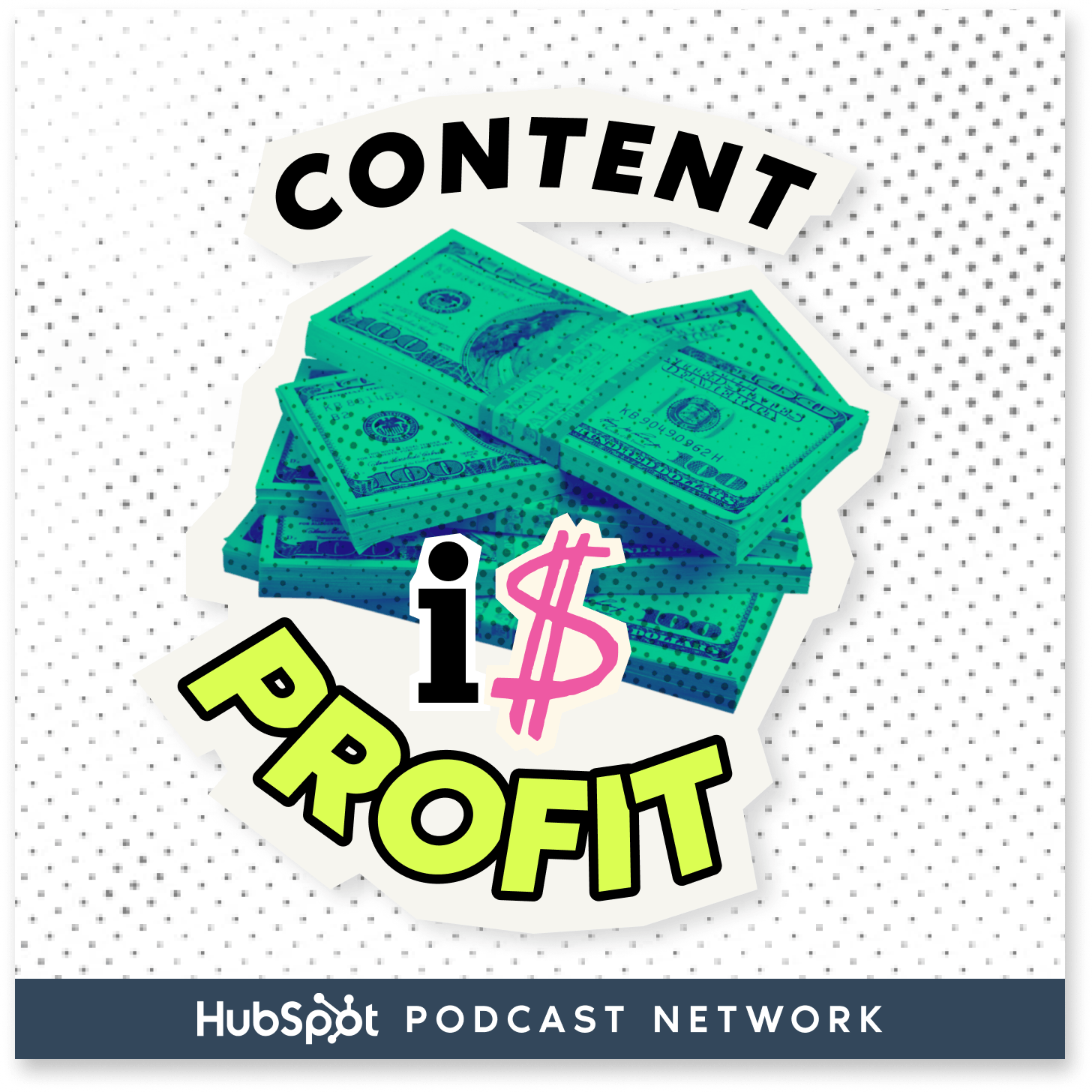
Content Is Profit
BIZBROS
Win The Content Game
Deirdre Tshien - CEO & co-founder of Capsho, AI-powered Content Marketer (the fastest way to repurpose and market your expert content)
Fastlane Founders and Legacy with Jason Barnard: Personal Branding, AI Strategies, and SEO Insights
Jason Barnard Entrepreneur and CEO of Kalicube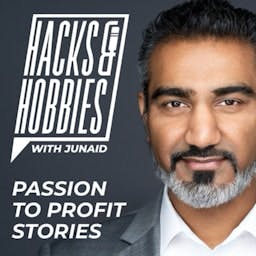
Hacks and Hobbies with Junaid Ahmed
Junaid Ahmed
I Have A Podcast by Vinnie Potestivo
Vinnie Potestivo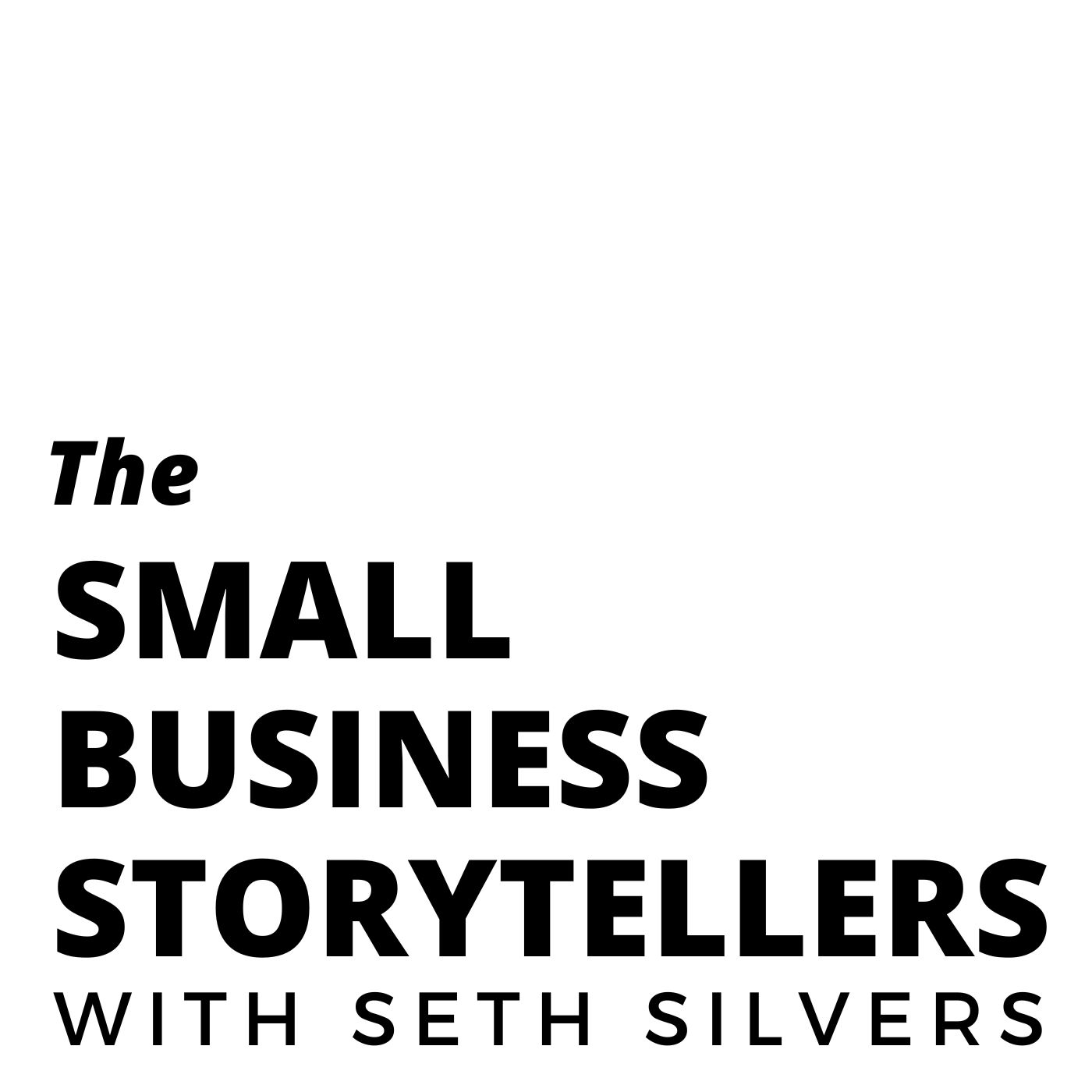
The Small Business Storytellers with Seth Silvers
Seth Silvers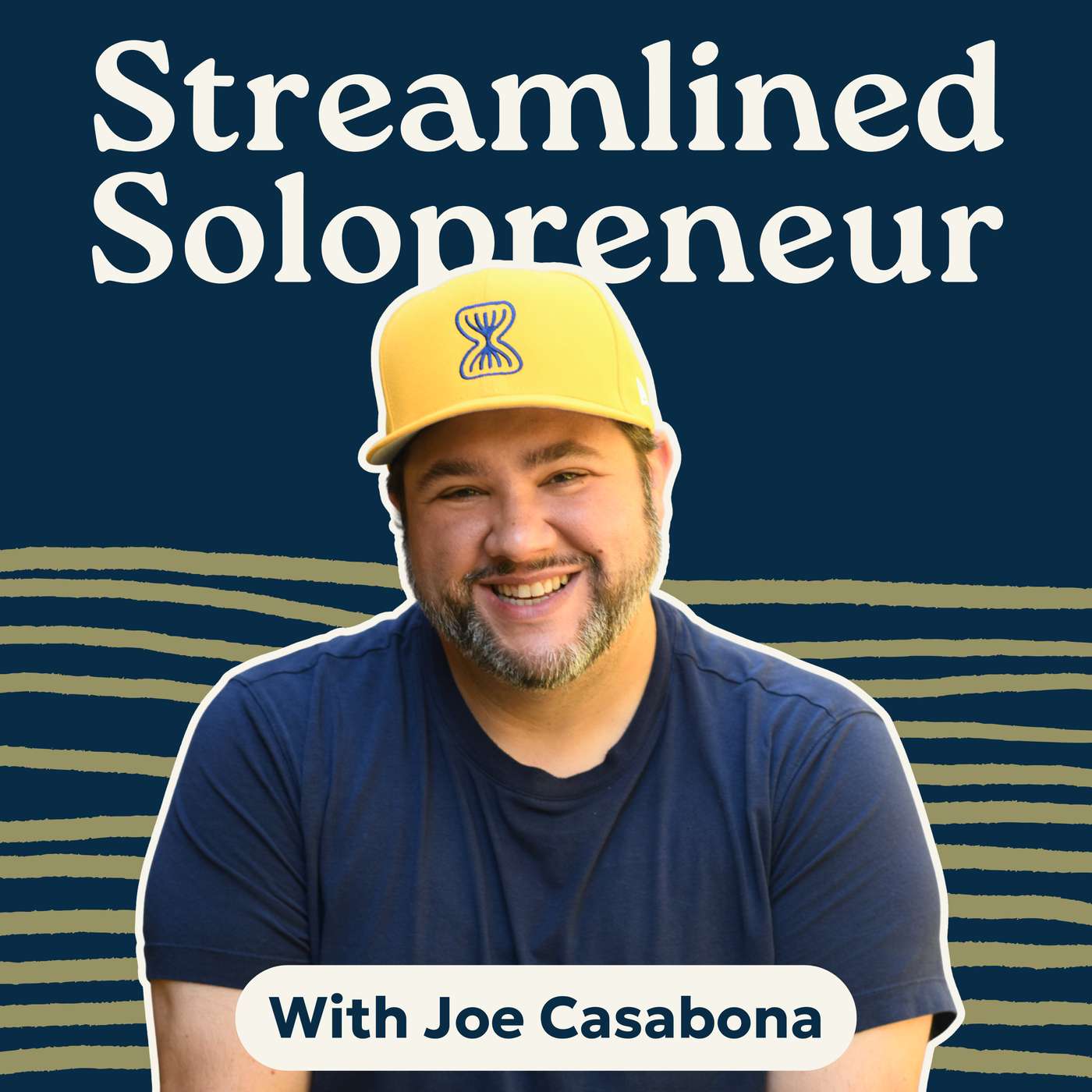
Streamlined Solopreneur: Tips to Help Small Business Owners Grow Without Burnout
Joe Casabona, Business Systems Coach
Insider Secrets to a Top 100 Podcast with Courtney Elmer | Podcasting Strategy for Business Growth
Courtney Elmer | PodLaunchHQ.comDo The Thing
Stacey Lauren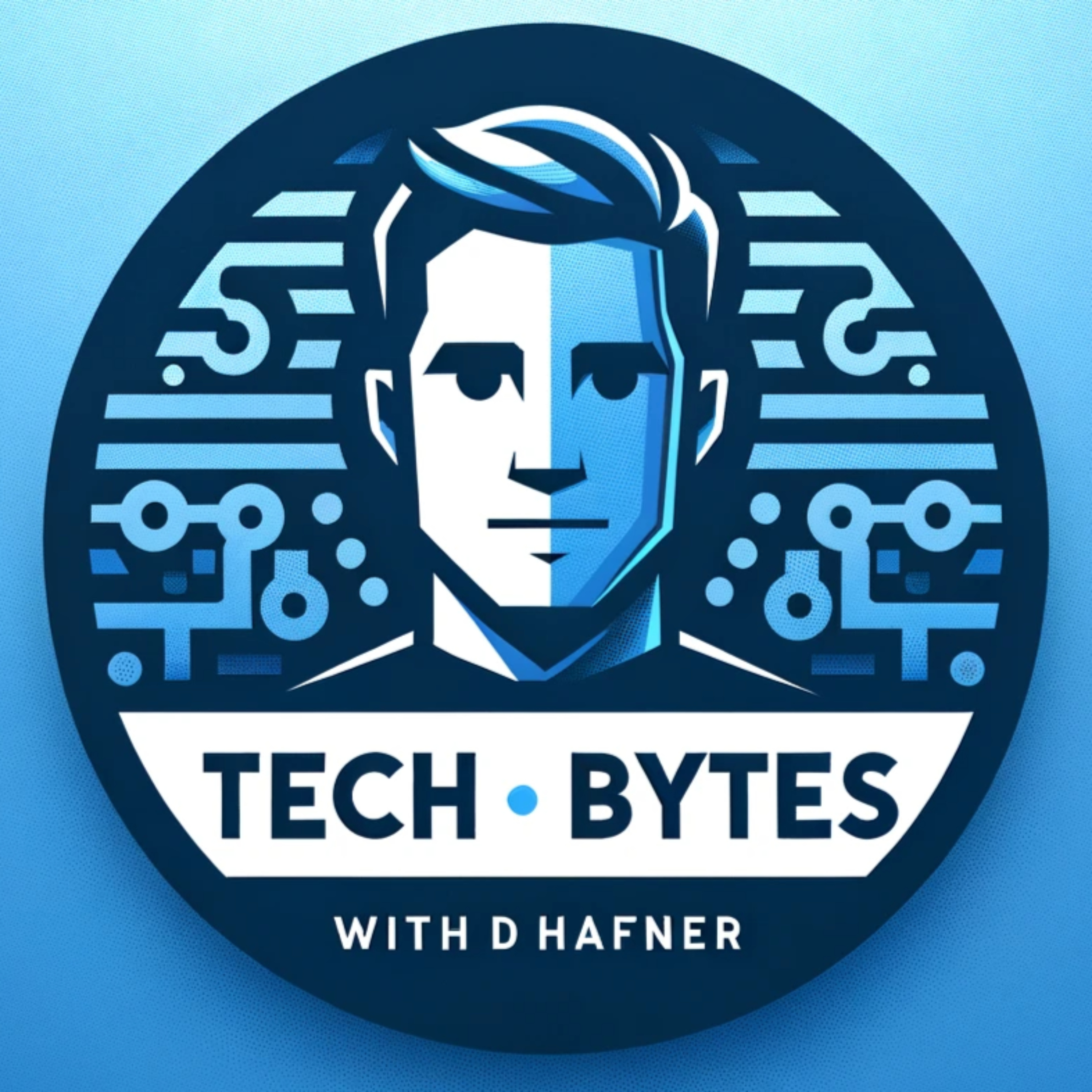
Tech Bytes - with Dan Hafner
Dan Hafner

